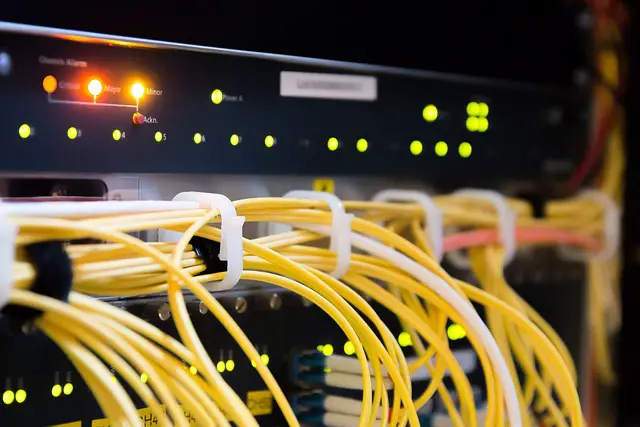Electrical connections play a crucial role in the functioning of various devices and systems, ensuring the smooth flow of electricity.
Over time, these connections may face challenges such as corrosion, oxidation, and poor conductivity, which can lead to malfunctions or failures.
WD-40, a popular multi-purpose lubricant and protectant, has been considered by many as a potential solution for maintaining and improving electrical connections. In this article, we will explore whether it is safe and effective to spray WD-40 on electrical connections.
Understanding Electrical Connections
To better understand the implications of using WD-40 on electrical connections, it is essential to grasp the fundamentals.
Electrical connections refer to the points where wires, terminals, or components are joined together to facilitate the flow of electrical current.
These connections can be categorized into wire-to-wire, wire-to-terminal, and wire-to-component connections, each serving a specific purpose.
Common Issues with Electrical Connection
Corrosion, oxidation, and poor conductivity are common challenges faced by electrical connections. Corrosion occurs due to exposure to moisture, chemicals, or environmental factors, leading to the formation of a corrosive layer.
Oxidation, on the other hand, is a result of the reaction between metals and oxygen. Both corrosion and oxidation can impede the flow of electricity, resulting in malfunctions.
Poor conductivity, often caused by loose or dirty connections, can lead to voltage drops and heat buildup, potentially causing damage to electrical systems.
Introducing WD-40
WD-40 is a versatile product renowned for its multi-functional properties. Originally developed as a water-displacing formula (hence the name “WD”), it has evolved to serve various purposes, including lubrication, cleaning, and protection.
Composed of a mix of solvents, lubricants, and corrosion inhibitors, WD-40 boasts properties that make it potentially suitable for addressing certain issues related to electrical connections.
Benefits of Using WD-40 on Electrical Connections
Spraying WD-40 on electrical connections may offer several benefits. WD-40’s anti-corrosion properties help prevent the formation of corrosive layers, protecting the connections from moisture and environmental factors.
Additionally, WD-40’s lubricating properties can help reduce friction and enhance the conductivity of electrical components.
The product’s cleaning capabilities can remove dirt, grime, and oxidation, restoring optimal electrical performance.
Moreover, WD-40 provides a thin layer of insulation that can protect against moisture intrusion and improve overall connection reliability.
Read also my article: Unlock the Power: Discover the Perfect Spray for Your Electrical Connections!
Precautions and Considerations
While WD-40 offers potential benefits, it is essential to exercise caution and follow proper guidelines when using it on electrical connections.
Safety precautions, such as turning off power sources and wearing protective gear, should be observed. Proper application techniques, such as applying WD-40 in small amounts and avoiding overspray, are crucial to prevent potential damage to sensitive components.
It is also essential to consider the compatibility of WD-40 with different types of electrical components and materials. Additionally, certain risks, such as the potential for electrical short circuits if WD-40 reaches live connections, should be taken into account.
How to Apply WD-40 on Electrical Connections
To ensure the effective and safe application of WD-40 on electrical connections, following a step-by-step guide is recommended.
This guide will outline the process from preparing the connections to the actual application. Additionally, specific scenarios where WD-40 can provide benefits, such as outdoor electrical connections exposed to the elements, will be discussed. Dos and don’ts will also be highlighted to ensure proper and responsible usage of WD-40 in electrical applications.
Alternatives to WD-40
While WD-40 is a widely known option, there are alternative products available for maintaining electrical connections.
This section will explore other options, such as contact cleaners, dielectric grease, and corrosion inhibitors, and discuss their advantages and disadvantages compared to WD-40.
Conclusion
In summary, maintaining electrical connections is crucial for the optimal functioning of electrical systems.
WD-40 offers potential benefits, including anti-corrosion properties, lubrication, cleaning capabilities, and electrical insulation. However, precautions and considerations should be taken into account when using WD-40 on electrical connections to ensure safety and effectiveness.
Ultimately, the decision to use WD-40 or alternative products should be based on the specific needs, compatibility, and risks associated with each individual situation.
Want to learn more about electricity? Check my YouTube channel!
Are You An Electrical Engineer or Electrician?
Install my Free On Google Play Now! It’s 100% Free
The staff I recommend (Amazon Affiliate Links to products I believe are high quality):
- Economy 120 Volt/60Hz AC Power Source – Step-Down Voltage & Frequency Converters 1800W
- UNI-T Digital Multimeter Tester UT139C
- 50-Amp Extension Cord for RV “100ft”
- Voltage Stabilizer 110/220v
- Hair Dryer “best selling“
- TOSHIBA EM131A5C-BS Countertop Microwave Ovens
Disclaimer: This contains affiliate links to Amazon products. I may earn a commission for purchases made through these links.
